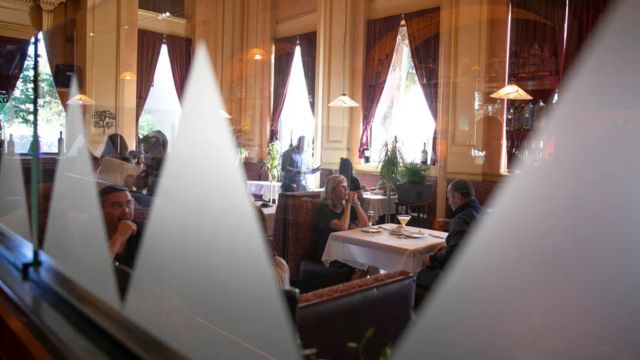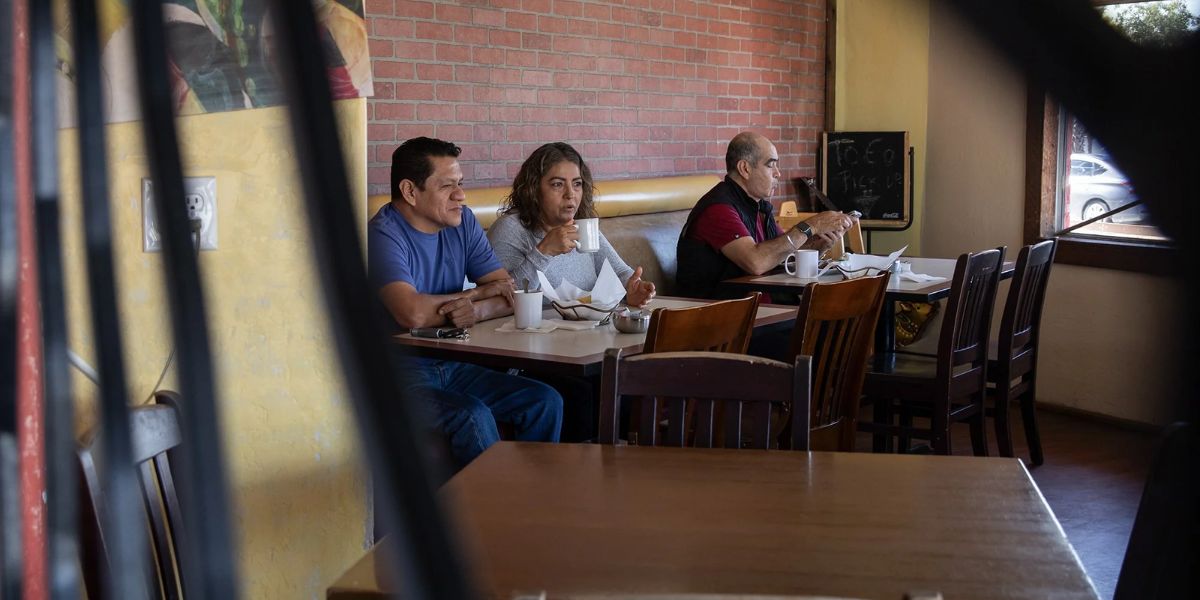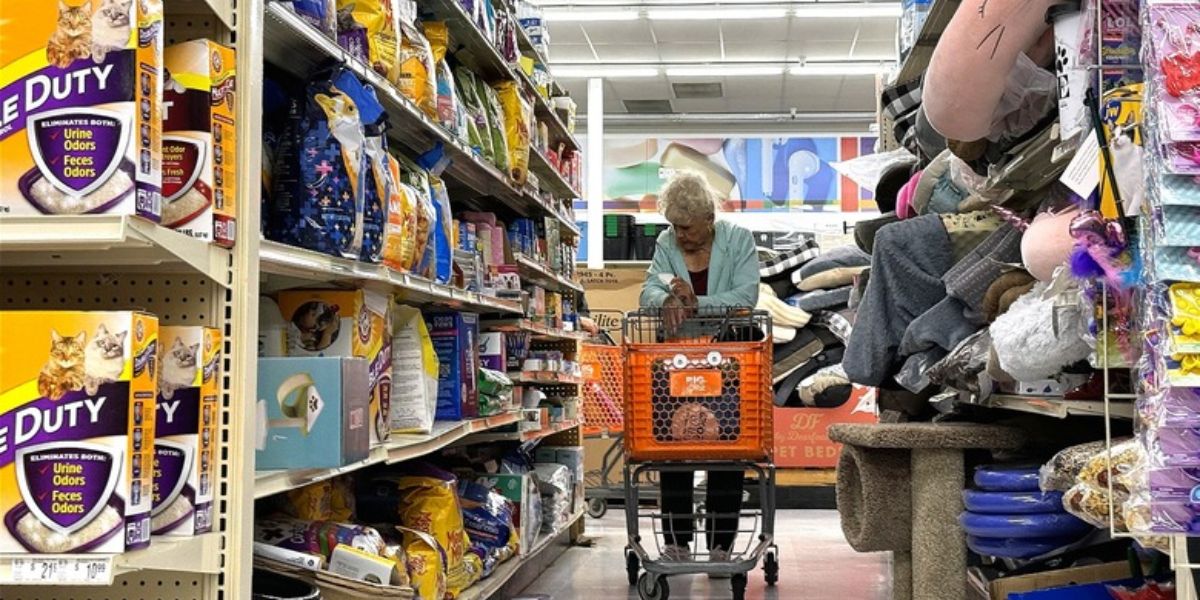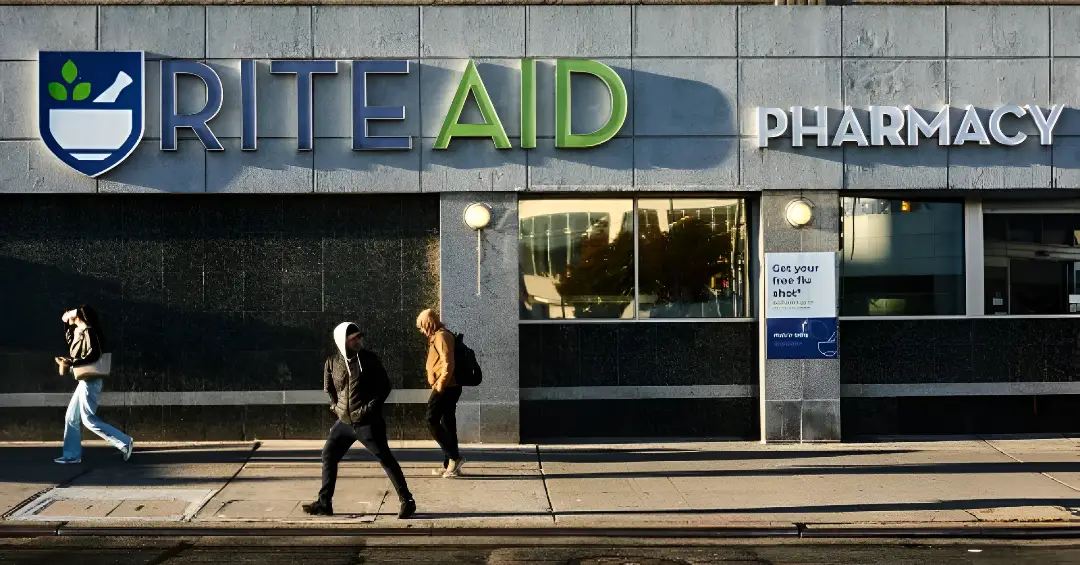On July 1, new state legislation that forbids so-called hidden “junk fees” when providing price quotes to customers will go into effect. However, some restaurant owners will have to make tough choices regarding a potential exemption, leaving many in an unsafe situation.
A cook sears a Niman Ranch grass-fed skirt steak for a carne asada taco at Tacolicious in San Francisco’s Mission District.
The founder of Tacolicious, Joe Hargrave, remarked, “The thought of raising the price more just keeps me up at night.”
Fourteen years ago, he started his modest business and charged $3.50 for a premium taco. The current price is $7.50, however it can change soon.
“I think the restaurant sector is very afraid of that sticker shock and what it’s going to look like locally in San Francisco,” Hargrave stated.
Reprinting menus and figuring out how much extra to charge if service fees such as the 6% surcharge—which helps him fund San Francisco’s requirement to provide workers’ health insurance—are removed are the tasks that Hargrave is currently working on.

Image – CalMatters
“‘Well, just put it in the bill,’ they say. However, it’s not that easy. We are not greedy businesspeople. We’re searching for the best answer without endangering our clientele,” Hargrave said.
Reducing the hidden costs imposed by hotels, airlines, banks, and other businesses has become a national campaign, with 11 more states attempting to outlaw “junk fees.”
SEE MORE –
Child Labor Violations at Hyundai Supplier in Alabama: US Labor Department Alleges in Lawsuit
According to recent surveys, the vast majority of customers are in favor of these initiatives.
“I wish I could just go into a restaurant or store, order what I want to eat, and pay the cashier that amount.” That would simplify our lives all together,” Finn Higgins remarked.
Blueprint has conducted a study to gauge the level of support for forty issues that could impact the 2024 election. 76% of net supporters favored a ban on companies offering customers hidden fees, which was the most popular option.
Any form of unstated cost is somewhat inconvenient. Of course, it’s preferable to be honest about a product’s true cost “said Hannah Gabany.
A decline in customers, leery of the rising expense of eating out, would affect cooks, bussers, and waiters like Sammi Garcia in addition to the operator’s bottom line.
“I truly rely on my tips because I’m a student,” Garcia stated.
Legislators in the state are rushing to approve an amendment that would exclude restaurants from the “junk fee” law that is about to go into effect, effectively forcing restaurants to raise all of their menu prices. Collectively, restaurants have been opposing the new law.
“Restaurants take a stomach punch when that is taken away. Furthermore, the high number of closures in California adds to the pressure on the $20 minimum wage, according to Daniel Ives, managing director of Wedbush Securities.
“Restaurants should be exempted from rubbish fees, if that is possible. However, there are always a few bad apples that spoil things, especially with hotels. That’s their true objective,” Ives remarked.
According to data from the U.S. Bureau of Labor Statistics, food spent at restaurants increased by 4% in May 2023 compared to 2023, while food bought at grocery stores increased by 1%.
This contributes to Hargrave’s need to strike a balance.
We’re engaged in an odd little tug-of-war at the moment. And all I can ask is that everyone approaches what we’re doing and what we’re about to go through with empathy,” Hargrave added.
He hopes that eateries will soon be spared from this need, but until then, the price listed on menus shouldn’t deter patrons. On July 1, the junk fee law reform will also go into force, and San Francisco’s minimum wage will increase.
Eighty-three percent of participants in a different survey conducted for the American Economic Liberties Project said they would be more inclined to support candidates who favor doing away with trash fees.




